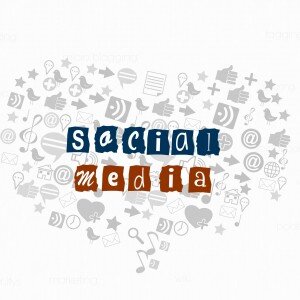It’s a shame: Social media & the job seeker
In my work as a career coach, I talk to a lot of people. A lot. When I’m working with job seekers, I often counsel them to review their social media accounts and think critically about the content within the context of “would this be appropriate in a professional setting.” Of course, personal social media is just that—personal—and as long as you’re not posting something offensive (Think “Trees are stupid and should be chopped down! I’m pro-pollution! Clean air is dumb. All the Great Lakes should be engulfed in flames!”) most of your personal opinions and photos are fine.
Social media is just that—social. It’s where we connect with our friends and family and stay updated on what’s going on in the lives of people we care about. It’s also an effective medium for b2b and b2c communication, and managing social media is critical to a business’s success. So when Emily Clow, a social media professional, applied for a position with Austin-based Kickass Masterminds, she probably assumed that the hiring team would look at her social media accounts. She didn’t expect that her personal social media would be used to shame her online.
But that’s exactly what happened.
Ms. Clow applied for a marketing role with the firm as "it was a company founded by women, seemed to support women in business and worked with start-ups.” Women support women, right? Pffffttttt. The hiring manager encouraged Ms. Clow to follow the company on Instagram. She complied. Imagine her shock when she discovered that the company had posted one of her personal photos on their corporate Instagram account. As if that wasn’t bad enough, the photo was accompanied by an admonishment. "I am looking for a professional marketer - not a bikini model. Go on with your bad self and do whatever in private. But this is not doing you any favors in finding a professional job."
Wow. So much to unpack here.
First, the company encouraged Ms. Clow to follow them on Instagram. Her IG profile cannot be the only one that had personal photos. Secondly, Ms. Clow did not apply for the job in question with a personal photo. The potential employer went through her personal photos and highlighted this one. Finally, what relevance does Ms. Clow’s personal photo have to the job for which she was applying? Exactly zero.
I have so many questions. Would this company have similarly called out a male applicant who had shirtless beach photos with him and his friends on his personal IG? Probably not. To what end did the company post the photo and comment, other than to bully Ms. Clow? And lastly, why would a female-owned company impose patriarchal ideals onto its potential employees? This last question is, perhaps, the most troubling. It is difficult enough for women to compete against their male peers. It would be helpful if established women would help in lifting up other women, rather than putting them down.
Here’s a suggestion for Kickass Masterminds’ management. Check out this Ted talk on public shaming. The speaker is an expert on the subject.


